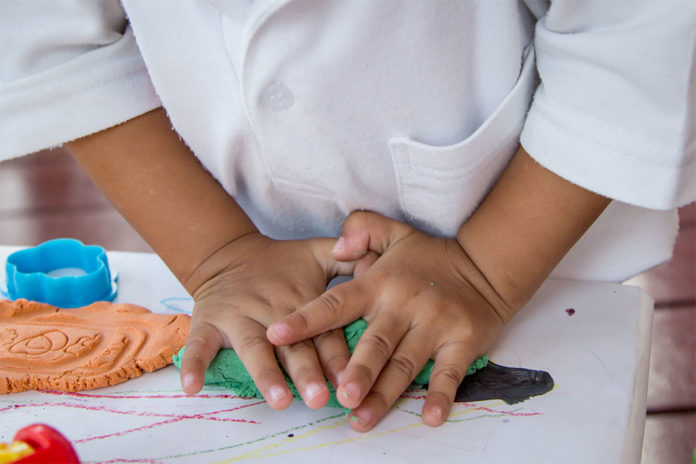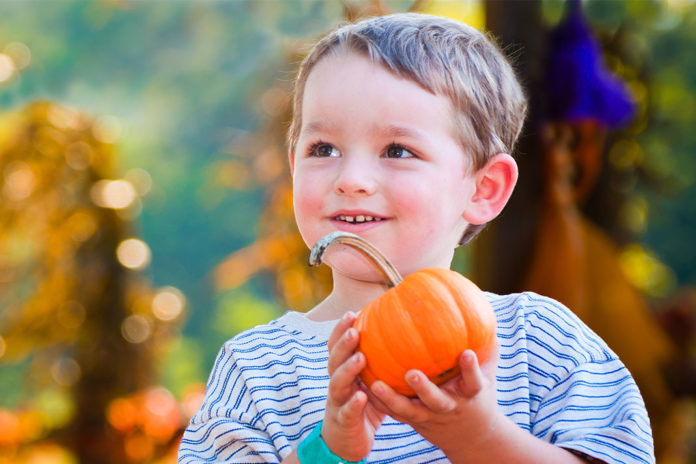Your child will love all the creativity and crafts that come with the Halloween season. Learn more from Dallington School on how to take advantage of your child’s curiosity by helping them develop their fine motor skills and allowing them to gain confidence in themselves.
Your child will love all the creativity and crafts that come with the Halloween season. Take advantage of their curiosity and help them develop their fine motor skills, allowing them to gain confidence in themselves.
Cognitive and physical development in childhood is a very precious process. It is important to provide your little one with the tools and opportunities to progress in their growth, particularly with fine motor skills.
Fine motor skills are the ability to use small muscles for accurate, coordinated movements. This important development is needed for activities such as drawing, cutting with scissors and even brushing their teeth. As adults, we take such things for granted and might not put so much thought into helping our children establish these abilities. However, they require a great deal of effort; hand-eye coordination, muscle stability and touch awareness play a key role.
There are many stages of success when it comes to fine motor skills. A building block for all other motor skills is palmar grasp and release, which can be noticed in squeezing and throwing. This evolves into more functional grasps, soon involving motion in the wrist. This is followed by pincer grip, which is use of the index finger and thumb to pick up and release objects, as well as finger isolation to point with one finger at a time.

A variety of activities can assist a child in refining their fine motor skills. Whether it be something like threading beads onto a string, playing with playdoh or practicing their handwriting, what seem like simplistic manoeuvres can help children establish their sense of independence and gain confidence in themselves.
The perfect way to help your child with these skills is to take advantage of the seasonal activities available and create opportunities for their development. Not only will they be gaining knowledge of their capabilities, but it is good fun as well!
Sam ‘Milko’ Mills, teacher and Science Coordinator at Dallington School, shares one great way to build your child’s motor skills whilst having fun with your toddler this season. Get messy and creative with this fun Halloween project. The precision required for some of the steps is great practice for your child in honing their skills.

You will need: Mini pumpkins (white ones look better but they are quite difficult to acquire), baking soda, white vinegar, washing up liquid, food colouring (your choice), a spoon and some measuring cups.
Take one of the pumpkins and cut out the area around the stem on top, not too big, as a smaller hole at the top makes a more impressive eruption! Through the hole, scoop out the insides of the pumpkin. Add a few spoons of baking soda into the pumpkin and then a squirt of washing up liquid, followed by a few drops of the food colouring of your choice. Pour the vinegar into a small measuring cup and give it to your child. Allow your child to slowly add vinegar into the pumpkin and watch the eruption unfold! You can repeat the process over and over with more vinegar and more baking soda. The dish soap gives the eruption its foaminess!
This experiment is a tremendously fun way to nurture curiosity. And the chemistry behind the fun, for those who want to know? Vinegar is an acid and baking soda is an alkali. When they combine, they react to create a lot of carbon dioxide which makes the bubbles in the eruption. Because you have given the pumpkin a small opening, the eruption comes up and out of the mini pumpkin at an increased pressure, like a volcano! The smaller the hole, the better the eruption…
Find out more from Dallington School on their website
Information on fine motor skills provided by the NHS






NO COMMENT